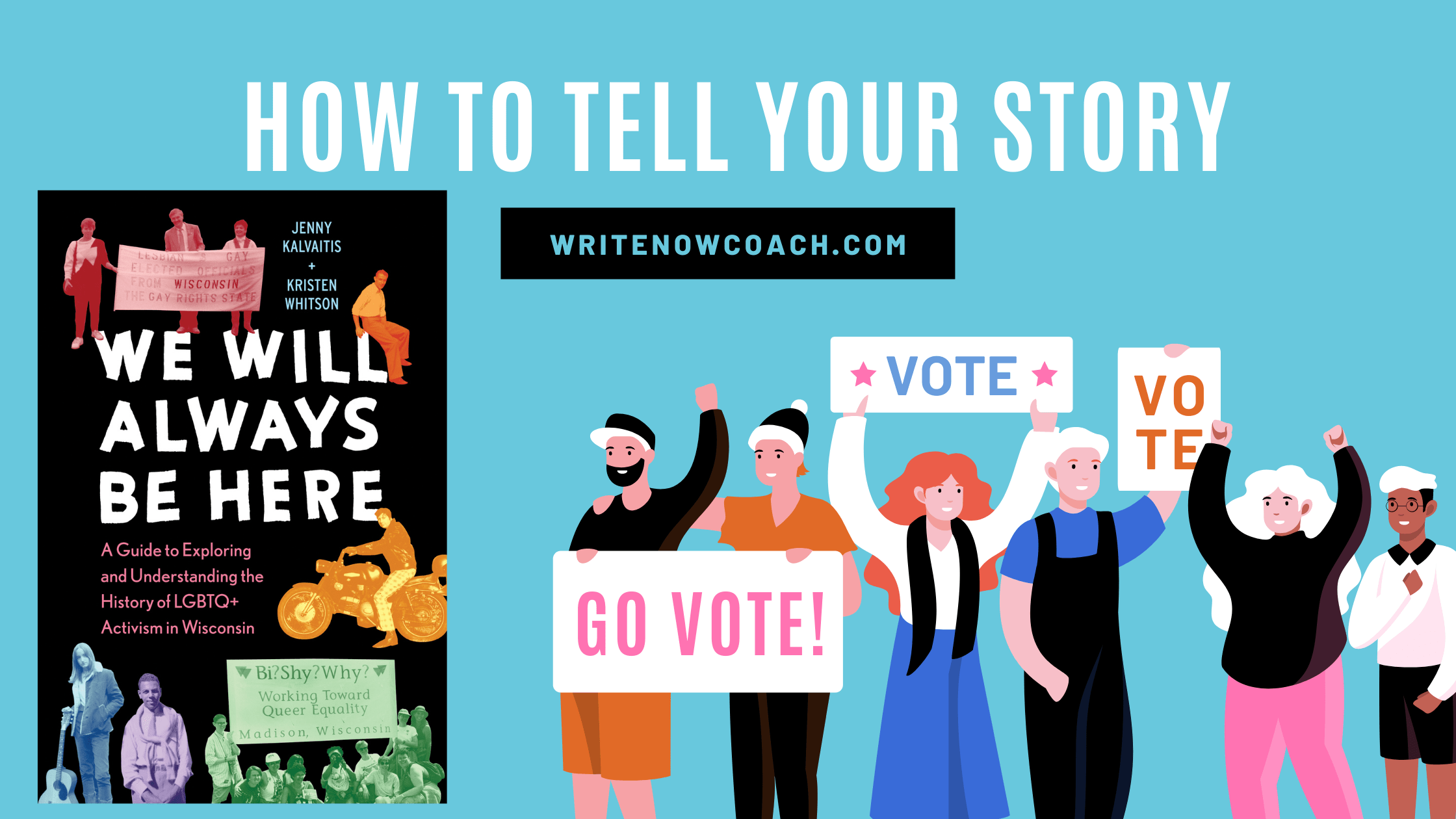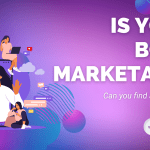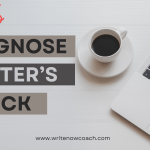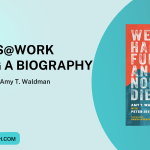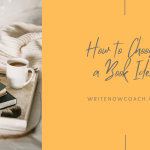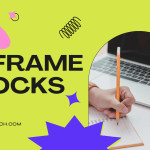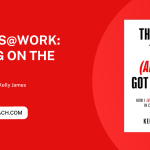Writers@Work: Tips for Telling Your Story
June 29, 2021
Note From Rochelle
Dear Writers,
It’s less than a month until my book comes out! Woot! If you’re interested in preordering it, you can do so at Bookshop, your local bookstore, or wherever you shop online.
And if you want to help me celebrate the book release, consider attending my launch. It’s an online launch—so you can attend from wherever you are. But you do need to register. Check out the event page on Facebook or Boswell Book Company for more information.
I am beyond thrilled to welcome Jenny Kalvaitis and Kristen Whitson to the blog, authors of We Will Always Be Here: A Guide for Exploring and Understanding the LGBTQ+ History of Activism in Wisconsin. I met Kristen many years ago, when she was a student at UWM (you can read more about that below). It’s been a thrill to follow her journey over the years—and now to read this book. It’s filled with the inspiring stories of people from the LGBTQ+ community who took brave action and made a difference in the world. The book encourages young people to tell their own stories.
Enjoy!
Rochelle
Writers@Work: Tips for Telling Your Story
An Interview with Jenny Kalvaitis and Kristen Whitson
Welcome to the blog. Can you tell us about your new book, We Will Always Be Here.
Thanks so much for asking us to participate, Rochelle! We’re glad to share a bit about We Will Always Be Here: A Guide for Exploring and Understanding the LGBTQ+ History of Activism in Wisconsin. The book is officially out June 15. It’s the latest in an LGBTQ+ history series from the Wisconsin Historical Society Press. It’s a primary source reader for teens, aimed at making the LGBTQ+ history of our state easily readable and accessible to those who may not know about Wisconsin’s long history of leading the way for LGBTQ+ rights and equality. We Will Always Be Here includes about 30 different stories, illustrated by primary sources like diary entries, love letters, oral history interviews, and newsletter articles about and by Wisconsin LGBTQ+ activists. We hope to see it find use with GSA (Gay-Straight Alliance) clubs, National History Day projects, in libraries and across a wide range of educational settings.
This blog is mostly read by writers—and they’re always interested in how people got their book deals. Can you tell us how the book came about?
Jenny: Our book had an unusual path to publication. This book was meant to be a curriculum that paired as part of an outreach effort for a two-volume series on the gay history of Wisconsin written by R. Richard Wagner, PhD. However, when I was assigned this task at work, I felt a curriculum on those books wasn’t the right fit for the audience. They are great books, but not written for teens. Instead, I proposed a separate book that would meet the needs of our audience better! So, oddly, our publisher came before the book proposal was finished. We still had to write a proposal and get it approved by their editorial board. But I went in with all the confidence that it would get published.
The first words of the book then, were written specifically for the proposal. But, it was the clear focus on our core-audience and the way they needed stories told that made the difference in the project being accepted.
You tell fascinating stories of people in Wisconsin’s LGBTQ+ community. How did you discover these? Any research tips for writers hoping to find untold stories?
Kristen: My background and education in archives, archival research, and LGBTQ+ archives was really helpful in this regard! I’d worked with a few different LGBTQ+ archives before and while we were writing the book, so I’d found some of the stories through my previous work. Jenny knew of some of the stories from her work with National History Day and previous research projects. And we searched for some together, too. It was important for us to have equal representation in several ways: race, gender, all of the letters in L, G, B, T, Q, I, A, +, and location in the state – so we sometimes specifically went looking for stories that would provide that representation. An additional challenge was that we wrote the majority of the book during a pandemic, when archives and libraries were closed to the public! We relied heavily on previous research we’d done and whatever digitized resources archives could share. Fortunately, the reading rooms opened back up in time for us to get the high-quality scans before the book went to print.
This is also a great example of why, when you’re writing about a community, it’s helpful to have a member of that community on your research team! As a member of the LGBTQ+ community myself, I had a personal stake in and understanding of which stories would resonate–because I knew personally the impact of those stories. For instance, in Chapter 1, we talk about Manonia Evans and Donna Burkett applying for a marriage license in Milwaukee in 1972. As someone who wasn’t able to be legally married to my wife until 2015, seeing how long the fight for marriage equality had been going on really struck me as significant.
As for writers hoping to find untold stories, first remember that only a small fraction of archival materials are digitized and available online; research trips to the archives really are the most helpful and effective method. LGBTQ+ stories, especially, are sometimes hidden in ways you might not expect. Two women or two men living together for their whole lives may not be identified as an LGBTQ+ relationship centuries ago, but reading closely we might be able to see if there was more going on than platonic relationships. (Caveat: sometimes there really isn’t a romantic relationship there! And sometimes there is.) Newspapers are a rich source of information. Talk to the reference archivist in the archives reading rooms! They know so much about collections and how to find materials in unexpected places. Someone mentioned in collection X might also have a collection at the same or a different repository, who might also know another story, and on and on. Reference archivists have treasure troves of stories stored in their heads!

You encourage readers to tell their own stories. Any tips for young LGBTQ+ writers?
Jenny: We do! I would say that more youth are writers than we apply the label to. If you write music, rap, papers, Instagram posts, journals, etc.– you are a writer! “Writer” is one of those words that feels like a high achievement. I am still not sure I am a writer. But, don’t let things like that intimidate you. Be true to yourself. Say yes to doing things that you love and opportunities that come your way. And all of a sudden people might start calling you a writer! [Note from Kristen: say yes when a colleague comes calling and asks you to co-write a book!]
Most of my writing has always been on history, and most of my youth coaching on this topic has been on historical topics, so here are some common things I say:
- What is your big idea? What are you trying to get across? Test it on a friend or family first (even as an adult, I have my mom read my work first sometimes!)
- A beautiful bibliography is the heart of your project.
- So what? Make sure to tell your reader why this matters.
- Write in drafts. No one has ever sat down and written the perfect document and called it done.
- Your work is never really done, so sometimes you just have to declare it done.

What are you reading?
Jenny: I always have multiple books going in different genres. I recently finished Sweeter Voices Still: An LGBTQ Anthology of Middle America. That book was a fantastic series of short pieces. I am actively reading: Start with Why by Simon Sinek (for my business/leadership book), The Birdman of Koshkonong: The Life of Naturalist Thure Kumlien by Martha Bergland (for my local/Wisconsin history fix) and Band of Sisters by Lauren Willig (as my fun fiction read)!
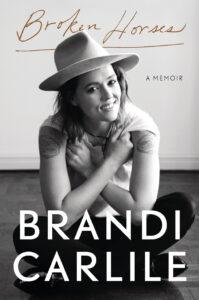 Kristen: I just powered through Brandi Carlile’s autobiography Broken Horses. This is a great time to tell your readers, Rochelle, that you and I run into each other at pretty much every Brandi Carlile concert in Wisconsin. This is not surprising, since you were the one to introduce me to the Indigo Girls about 15 (!) years ago. Your husband Harold Eppley was helping out as a campus pastor for the ELCA campus ministry at UW-Milwaukee, and somehow a CD of your favorite Indigo Girls tunes made it to our campus ministry house. Brandi Carlile was very much an Indigo Girls protege as she made her way into the spotlight, so it makes sense that you and I have seen each other at four (?) Brandi Carlile concerts since then! Thanks for the music, then and now. It’s delightful that both Brandi and I have books with our names on them out this year.
Kristen: I just powered through Brandi Carlile’s autobiography Broken Horses. This is a great time to tell your readers, Rochelle, that you and I run into each other at pretty much every Brandi Carlile concert in Wisconsin. This is not surprising, since you were the one to introduce me to the Indigo Girls about 15 (!) years ago. Your husband Harold Eppley was helping out as a campus pastor for the ELCA campus ministry at UW-Milwaukee, and somehow a CD of your favorite Indigo Girls tunes made it to our campus ministry house. Brandi Carlile was very much an Indigo Girls protege as she made her way into the spotlight, so it makes sense that you and I have seen each other at four (?) Brandi Carlile concerts since then! Thanks for the music, then and now. It’s delightful that both Brandi and I have books with our names on them out this year.
In other book news, I’m just starting Michelle Caswell’s Urgent Archives: Enacting Liberatory Memory Work. She’s my archives hero!
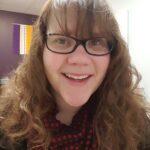 Jenny Kalvaitis has a master’s degree in Public History from Indiana University–Purdue University Indianapolis, and she has worked in informal education and museum education for over ten years. We Will Always Be Here: A Guide for Exploring and Understanding LGBTQ+ Activism in Wisconsin is Jenny’s first book project.
Jenny Kalvaitis has a master’s degree in Public History from Indiana University–Purdue University Indianapolis, and she has worked in informal education and museum education for over ten years. We Will Always Be Here: A Guide for Exploring and Understanding LGBTQ+ Activism in Wisconsin is Jenny’s first book project.
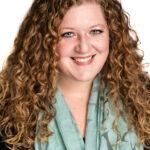 Kristen Whitson has a master’s degree in Library and Information Science from the University of Wisconsin–Madison, and she has worked in digital preservation, community and indigenous archives, and LGBTQ+ archives. We Will Always Be Here: A Guide for Exploring and Understanding LGBTQ+ Activism in Wisconsin is Kristen’s first book project.
Kristen Whitson has a master’s degree in Library and Information Science from the University of Wisconsin–Madison, and she has worked in digital preservation, community and indigenous archives, and LGBTQ+ archives. We Will Always Be Here: A Guide for Exploring and Understanding LGBTQ+ Activism in Wisconsin is Kristen’s first book project.
NOTE: The books links lead to the Write Now! Coach bookstore on Bookshop.com. Write Now! Coach receives a small percentage of your purchase, which helps to support this blog.

